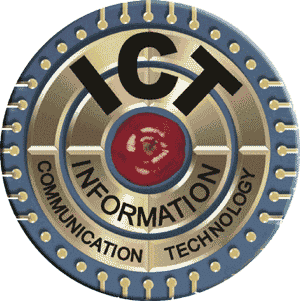1. Concepts and necessity of ICT
Ans:- ICT is the abbreviation for information and communication Technology, which is a combination of information processing and Communications systems and the application software’s that are Used to create, store, transmit, analyse, manipulate and share information In its various forms.
Q.2 State the implications of ICT in education.
Ans:- The trend towards an information based society with widespread use Of Information and communication Technology (ICT) is expected to shape the
Learning process and learning environment in the future some of the implication of ICT in education are as follows.
1) ICT- enabled learning will be crucial in acquiring up-to-date knowledge. And new skills to remain socially competitive.
2) ICT can provide different and better learning options, and thus make self-learning Faster and more interesting.
3) ICT enables “anytime, anywhere” learning. It can provide the learner the flexibility to Choose to time pace and place to learn.
4) ICT can overcome physical and geographical barriers to connect learning individuals to share ICT literacy and ICT skills are necessary for employment, self-development and active participation in modern society. To live in this digitalised and networked society, the new generation need to learn the technologies involved in ICT, and the skills to operate them.
5) Lectures by excellent teacher from all over the world can be brought to classrooms anywhere in the world using modern communication technologies.
6) Students in a classroom can directly interact with scientists and discuss on real life issues and problems.
Q.3 State the uses of ICT in day-to-day life.
Ans:- Information and communication technology (ICT) has transformed the way people work, learn and have fun some of the broad application areas of ICT are as follows.
1) Business :- ICT helps a seller in business transaction with customers and suppliers, as well as remains up to date withal aspects of his/her business sales, expenses, etc
2) Industry:- computer are used in designing, automated manufacturing inventory control etc.
3) Home:- A computer at home can be used for playing games as well as for personal accounting shopping various banking transactions including bill payment playing games and communicating are possible through the Internet.
4) Education and training:- Multimedia educational software’s and Internet connectivity can motivate and make learning at all levels a rich experience. Training using ICT is easier and cheaper.
5) Entertainment and arts:-computer are now exclusively used for editing cine films, creating special effects and animations composing music creating illustrations and cartoons, and restoring still pictures.
Q.4 State the role of ICT in science and technology.
Ans:- Digital computers were invented for performing long, time consuming scientific calculation quickly. Today’s fast computers can create and display virtual reality scenarios on the computer monitor. Scientists use simulations to test scientific theories’ as well as to perform risky experiment’s, such as those involving explosive or toxic materials. A flight simulator is now invariably used to teach trainee pilots various controls of an aeroplane. This allows the trainee to practise all the controls under normal as well as emergency situation before actually flying a plane, thus minimising the risk of loss of life and property.
Simulations of surgical procedure allow medical students to learn and practise a surgery, and its intricacies and risks, without dangering a patient’s life. Another use of computer simulations in medicine is for testing a new drug before it can be allowed to be used for humans. The earlier practise of using animals for drug testing is now banned because of ethical implications.
Q.5 Sate the advantages of ICT.
Ans:- ICT is increasingly used in the field of education because of its following advantages.
1) ICT can make education accessible to all. With the use of various communication technologies, like radio conferencing and the Internet, is possible to provide education to provide education to people who are isolated by geographic, social and infrastructural barriers.
2) ICT infuses greater efficiency in education learning can continue even outside an educational institution. A learner can access study materials or recorded lectures of subject experts even from home.
3) The use of ICT can highly motivate and engage a learner. It helps in visualising many abstract concepts, fosters enquiry and stimulates the learner to explore further, on the other hand a slow learner can use ICT to learn and practise the basic skills at his own pace.
4) Teachers can use ICT to develop good teaching materials and also to expose the students to a world of information.
5) Learning through the use of ICT can provide opportunities and motivation for learning anywhere, anywhere, any time and at any age. Thus, ICT has the potential to fulfil the long-standing inspirational concepts of learning as lifelong activity.
6) The use of ICT can help an educational institution in the administrative and academic management of the institution, e.g. student admission and assessment pay roll and accounting library information system, etc.

hey can u plz post answers of lessons no 5,6,7and 8 also
ReplyDeletei agree
ReplyDeletehttp://www.sscict.blogspot.in/p/std-ix-ch-1.html
ReplyDeletepost the ans of lesson 3 plz
ReplyDeleteEasy
ReplyDeletepls post filling the blanks of lesson 1st
ReplyDeletepls post filling the blanks of lesson no 1
ReplyDeleteI want text book language ans of lesson 1&2 please.
ReplyDelete